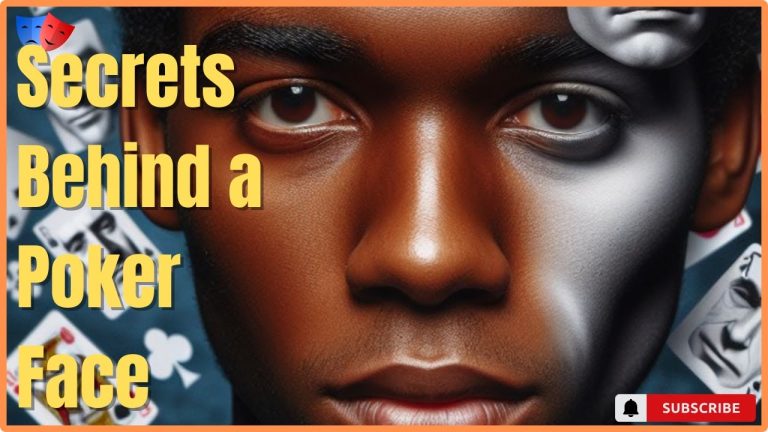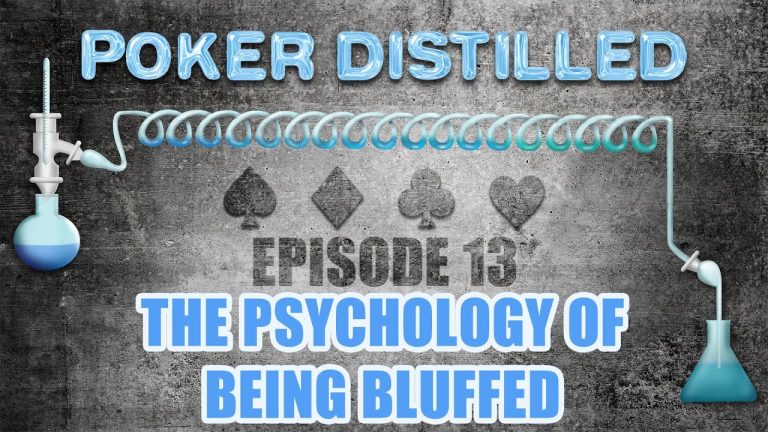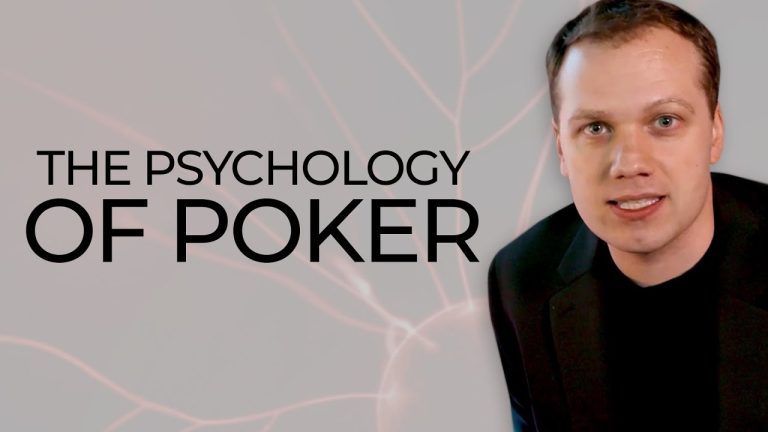Are you ready to master the art of hiding your tells in poker? In the world of high-stakes games, the ability to conceal your emotions and intentions can make all the difference between winning big or going home empty-handed. Join us as we delve into the secrets of poker psychology and uncover the strategies used by the pros to maintain a stone-cold poker face. From mastering body language to controlling your breathing, this article will equip you with the tools necessary to become an expert at hiding your tells and outsmarting your opponents at every turn. Get ready to elevate your poker game to new heights and leave your opponents guessing with every move.
Advantages
- Bluffing Potential: Mastering the art of hiding your tells in poker gives you a significant advantage in bluffing. By concealing any physical or verbal cues that might give away the strength or weakness of your hand, you can effectively deceive your opponents and make them believe you have a better hand than you actually do. This can lead to successfully bluffing your way to winning hands and accumulating more chips.
- Increased Observational Skills: When you focus on hiding your tells, you naturally become more observant of your opponents’ behavior and body language. This heightened attention to detail allows you to pick up on subtle cues and patterns that can give you insights into their hand strength and decision-making process. By improving your observational skills, you can make more informed decisions and gain an edge over your opponents.
- Psychological Advantage: Hiding your tells in poker not only affects your opponents but also plays a significant role in your psychological advantage. By appearing calm, composed, and unreadable, you can create doubt and uncertainty in the minds of your opponents. This psychological pressure can lead them to make more mistakes, second-guess their decisions, and ultimately give you an upper hand in the game. Mastering the art of hiding your tells allows you to manipulate the psychology of the game and gain a competitive edge.
Disadvantages
- Increased Difficulty in Reading Opponents: One of the major disadvantages of mastering the art of hiding your tells in poker is that it becomes harder to read your opponents. Tells, which are subtle cues or gestures that reveal information about a player’s hand, are an important aspect of poker strategy. By suppressing your own tells, you may also inadvertently lose the ability to accurately interpret your opponents’ behaviors, potentially leading to missed opportunities or making poor decisions.
- Limited Ability to Mislead Opponents: Hiding your tells too effectively can also limit your ability to mislead opponents. In poker, players often use intentional false signals or exaggerated behaviors to mislead others about the strength or weakness of their hands. By completely suppressing your own tells, you may appear too stoic or predictable, making it harder to bluff effectively and gain an advantage over opponents.
- Increased Mental Strain: Successfully hiding your tells requires a significant amount of mental effort and concentration. Constantly monitoring your own body language, facial expressions, and vocal cues can be mentally exhausting, leading to increased strain during long poker sessions. This additional mental burden can potentially affect your decision-making abilities and overall performance at the poker table.
- Reduced Authenticity and Enjoyment: The art of hiding your tells can sometimes lead to a loss of authenticity and enjoyment in the game. Poker is not just about winning money; it is also about the social aspect and the excitement of reading your opponents’ behaviors. By overly focusing on concealing your tells, you may miss out on the genuine interactions and the thrill of deciphering your opponents’ moves. This can lead to a less fulfilling poker experience overall.
How can one conceal their tells while playing poker?
When it comes to hiding your tells in poker, it can be quite the challenge, but adopting a long-term perspective can prove to be a valuable tactic. By refraining from becoming overly fixated on a particular result or course of action, you minimize the chances of revealing any signs of nervousness, excitement, or disappointment. Maintaining a calm and composed demeanor throughout the game is key to keeping your opponents guessing and ensuring your poker face remains impenetrable.
How can one avoid giving tells in poker?
By strategically choosing when to bet, players can mask their intentions and prevent opponents from gaining information about the strength of their hand. This can be achieved through well-timed bluffs, calculated raises, and carefully planned check-raises. By varying their betting patterns, players can keep their opponents guessing and avoid giving away any tells.
In addition to position and betting, hand selection plays a crucial role in concealing tells. By carefully selecting which hands to play, players can minimize the risk of revealing their intentions. Playing a tight and selective range of hands allows players to maintain a strong and consistent image, making it difficult for opponents to decipher their strategies. By avoiding marginal hands and only playing premium holdings, players can reduce the chances of giving away any tells.
In conclusion, mastering the art of not giving tells in poker requires a combination of strategic positioning, calculated betting, and careful hand selection. By utilizing these techniques, players can maintain control over the game and prevent opponents from gaining valuable information about the strength of their hand. By staying one step ahead and keeping opponents guessing, players can increase their chances of success at the poker table.
Do poker players conceal their cards?
When it comes to poker, keeping your cards hidden is not only allowed, but often encouraged. Unlike other card games, there is no obligation to reveal your hand to other players unless it’s necessary to claim victory. This element of secrecy adds an exhilarating edge to the game, as players strategically decide when to fold or show their cards for maximum impact.
In the world of poker, the power lies in the hidden cards. With no strict requirement to unveil your hand, you have the freedom to play mind games and keep your opponents guessing. The anticipation builds as players carefully choose when to reveal their cards, creating an electrifying atmosphere where every move is calculated and suspense fills the air.
Unmasking the Secrets: Master the Art of Concealing Your Tells
Unmasking the Secrets: Master the Art of Concealing Your Tells
In the world of poker, mastering the art of concealing your tells can make all the difference between success and failure. It’s not just about the cards you hold, but how you present yourself at the table. With a subtle smile or a nonchalant shrug, you can keep your opponents guessing and gain the upper hand. By carefully controlling your body language and maintaining a poker face, you can become a master of deception and keep your true intentions hidden in plain sight.
However, concealing your tells is not just about putting on an act; it’s about understanding the psychology behind human behavior and utilizing it to your advantage. By observing the patterns and habits of your opponents, you can decipher their true intentions and adjust your strategy accordingly. With a keen eye and a calculated approach, you can unmask their secrets while keeping yours concealed, ultimately becoming an unbeatable force at the poker table. So, embrace the art of concealment and let your opponents wonder what lies beneath the surface as you play the game of poker like a true master.
Cracking the Code: Unlocking the Power of Your Poker Pokerface
Are you ready to unlock the secrets of a winning poker pokerface? Cracking the code to mastering this essential skill is the key to becoming a formidable player at the poker table. Your pokerface is your greatest weapon, allowing you to bluff, deceive, and keep your opponents guessing. It’s a powerful tool that can help you control the game and gain a competitive edge. With the right techniques and practice, you can harness the power of your poker pokerface and take your game to the next level.
Developing a strong poker pokerface requires a combination of self-control, awareness, and strategic thinking. It’s about maintaining a calm and composed demeanor, even when your heart is racing and the stakes are high. By keeping your emotions in check and carefully observing your opponents, you can gain valuable insights and make informed decisions. Your poker pokerface is not just about hiding your true intentions; it’s about using it as a tool to manipulate the game and influence the actions of others. So, polish your pokerface and get ready to crack the code to unlock the power within.
Mastering the art of hiding your tells in poker is a skill that goes beyond the surface level of the game. It requires a deep understanding of body language, self-awareness, and the ability to control one’s emotions. By carefully concealing any signs of nervousness or excitement, skilled players can maintain a poker face that keeps their opponents guessing. Ultimately, the ability to effectively hide tells can make all the difference between a successful bluff and a costly mistake at the table. So next time you sit down for a game of poker, remember that the true art lies not only in the cards you hold, but in the skillful mastery of your own tells.



